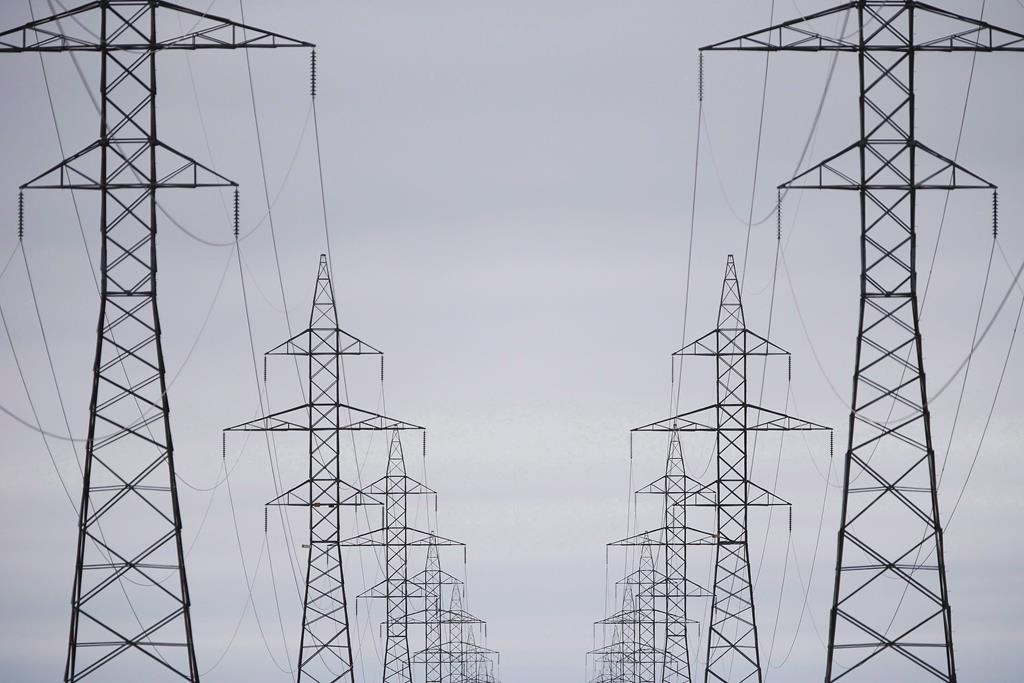More than 2,000 Manitoba Hydro workers will be walking off the job Tuesday afternoon after their union says members overwhelmingly rejected the Crown Corporation’s latest contract offer.

In a statement, the International Brotherhood of Electrical Workers 2034 says Hydro has been served notice that all IBEW members in all areas of the province will be taking labour action between 1:30 p.m. on March 23 to 8 a.m. March 25.
Earlier Tuesday, the union said 88 per cent of voters had rejected Hydro’s ‘final offer.’ Voter turnout was pegged at 94 per cent.
“That was probably a bit higher than we were expecting,” says Michael Espenell, IBEW Business Manager, adding he thinks members are feeling a lot of uncertainty right now.
“(Members) certainly provide a lot of value to the corporation, and they’re there when they’re called upon, they always kind of answer the bell, and they want to make sure that their jobs are secure and Hydro is secure and they want to get back and serve Manitobans.”
The IBEW says Hydro’s offer spanned 2019 to 2022, and proposed 0 per cent increases in the first two years, followed by 0.75 per cent and 1.0 per cent the following two years.
The union had also declared a general strike for last Thursday morning, however, that was averted at the eleventh hour when it said it had received the utility’s ‘final offer,’ and would be taking it to members for the vote.
Espenell says Hydro’s offer didn’t address three of their main points: a wage increase similar to other members in the corporation, a reversal of three unpaid days off in 2020, and a COVID-19 stipend for front-line workers.
“One of the main sticking points is when we look at the overall duration of the contract, we’re essentially talking about four years without an effective increase when we consider the rollbacks that took place last year,” Espenell says.

Get daily National news
“We were looking for pay increases similar to some of the other members in the corporation. Not the 24 to 32 per cent that some of our executives gave themselves in 2017, but more like cost of living. We’re just looking to keep our heads above water.”
The IBEW says it’s hard to believe the provincial Progressive Conservative government hasn’t been meddling in negotiations considering the similarities between Hydro’s proposal and The Public Services Sustainability Act.
The act, otherwise known as Bill 28, would have frozen wages for more than 110,000 public sector workers for two years, followed by pay increases of 0.75 per cent in the third year and 1.0 per cent in the fourth.
It was struck down by a judge in 2020, who slammed it as a “draconian measure” that was unduly harsh and violated the right to collective bargaining.
Espenell says the union is ready to continue negotiations.
“I think if the parties were left to their devices, I’m confident we could get a collective agreement,” Espenell says. “It’s unfortunate that this time there just appears to be a lot of interference, and that makes it a very difficult task.”
The IBEW says the strike will not apply to members in a classroom or at the Training Centre, or those currently attending Red River College or University College of the North.
In a statement to Global News, a Manitoba Hydro spokesperson says the utility is assessing how to resolve the strike and no decisions have been made yet.
They add contingency plans are in place to maintain electric service and protect public safety around infrastructure and facilities.
“Public safety is our number one priority, and we will do everything we can to ensure we respond to issues as quickly as possible until the strike is over,” the statement reads.
“We have redeployed staff to support those efforts from other areas of business as required.”
In the event of a major weather event, Hydro says calls involving public safety will be prioritized, followed by those affecting large numbers of customers. It says restoration times may be slower than normal circumstances.
In addition to the third and fourth-year wage increases, the Crown Corporation says its offer included “benefit improvements, and extension of a ‘no layoff’ clause for the 2021-22 fiscal year.”













Comments
Want to discuss? Please read our Commenting Policy first.